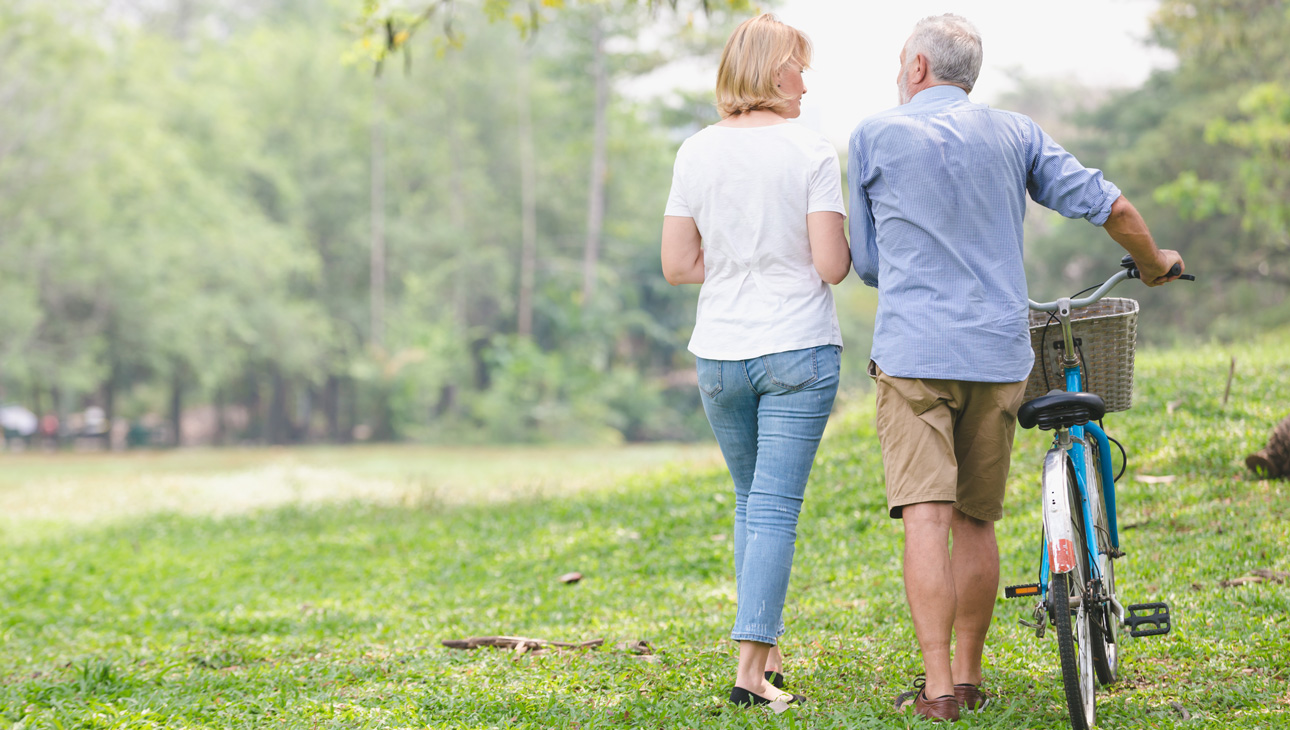
As we get older, many of us will notice changes in our vision. Our sight may gradually get worse, eyes may become dry or watery, and our susceptibility to certain eye conditions increases. While these symptoms are a natural part of ageing, changes to eye health can be a concern – these tips can help keep your eyes healthy for longer.
Eye tests not only ensure your prescription matches your needs exactly, they’re also an essential step in tracking the general health of your eyes.
As part of your eye exam, eye care professionals will look for signs of diseases and other issues like glaucoma or cataracts. If they find anything, they’ll be able to identify the problem and talk to you about what treatments are available.
On top of having frequent eye tests, there are lots of different ways you can help preserve the health of your eyes. From major lifestyle factors to small changes, these tips can help you look after your eyes as you get older.
Filling your plate with colourful foods is one of the sure-fire ways to help your eyes thrive later in life. Leafy greens, citrus fruits, orange and yellow vegetables, and fish rich in omega-3 are full of nutrients and anti-oxidants, which can help prevent the development of cataracts and age-related macular degeneration (AMD).
The sun’s UV rays can cause permanent damage to your eyes and wearing sunglasses is one of the simplest ways to protect them. As a minimum, look for sunglasses labelled with ‘UV 400’, as these will protect you from all UVA and UVB rays.
Sunglasses aren’t just for days with strong sunlight – overcast days can still be very bright, so it’s worth keeping a pair nearby.
Regular exercise doesn’t just keep you fit. It also ensures good circulation and increases your oxygen intake, which are both important for maintaining eye health.
Studies show exercising just a few times a week can help reduce your risk of developing common eye diseases – and it doesn’t have to be high intensity. A regular routine of walking, running, light cycling or pilates is ideal and won’t put too much strain on your body.
Sleeping helps lubricate your eyes and clear out irritants, which is why it’s important to establish a good routine. Try avoiding caffeinated drinks in the afternoon and limiting screen time before bed to give yourself the best chance of a great night’s sleep.

According to the Royal National Institute of Blind People (RNIB), you double your risk of developing AMD (age-related macular degeneration) if you smoke. It’s also linked to the development of cataracts, so if you want to reduce your risk, giving up smoking is a great way to do so.
For advice and support, take a look at the NHS’s dedicated Smokefree website.
Dust, sand, pollen, and other foreign objects can all cause discomfort – and even minor damage – if they enter your eye. Take preventative steps by making sure you’ve got adequate eye protection, whether you’re exercising outside or getting on with some long-awaited DIY.
Drinking a lot of alcohol over a long period of time can weaken the muscles in your eyes and impair your sight. Your peripheral vision could be affected, as well as your ability to distinguish between colours.
An occasional drink should not do any lasting damage to your eyes. As a good practice, stick to alcohol guidelines by consuming fewer than 14 units a week.
According to the NHS, your eyes need three times as much light to see well at 60 as they did when you were 20.
Keep curtains open to let plenty of natural light in and make sure you’ve positioned electric lamps to avoid glare when reading.
As you get older, your eyes become less effective at producing tears, so it’s natural for them to feel a little drier than you might be used to. If your eyes are feeling particularly dry or irritated, try using specialist dry eye drops or spray to help soothe symptoms.
While these suggestions aren’t exhaustive, they are some of the most influential factors when it comes to your eye health. You may not be able to commit to all of them, but even making small changes to look after your eyes will stand you in good stead as you get older. As always, if you have any concerns, be sure to speak to a healthcare professional.
Find out how the menopause can affect your eyes, along with practical ways to reduce discomfort.
Love exercising outside? Here’s how to ensure your eyes have the best protection.
We explain how eyes are impacted by computer and mobile screens and what you can do to offset the effects.